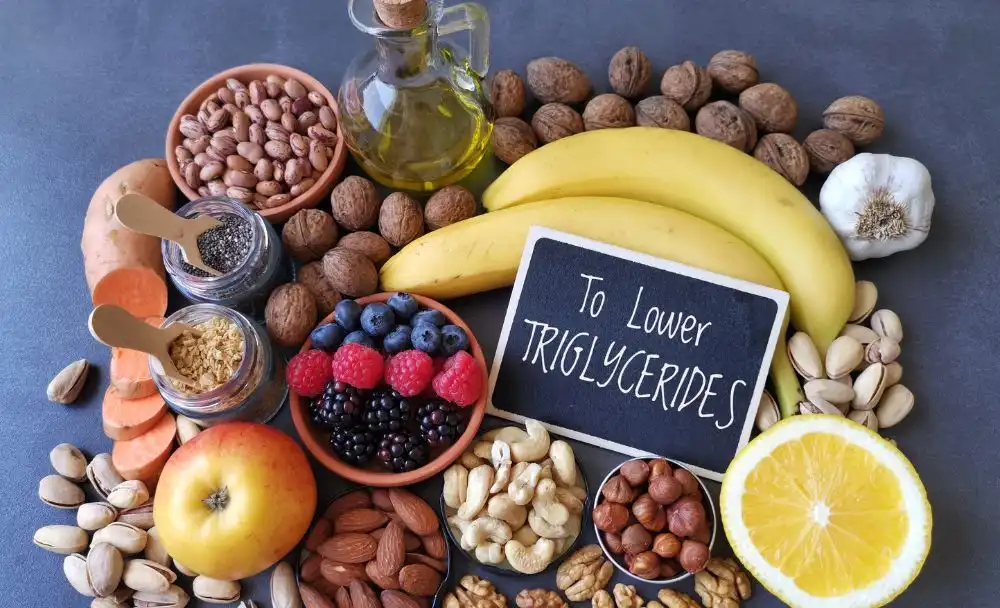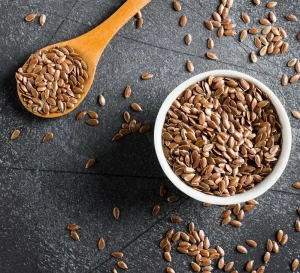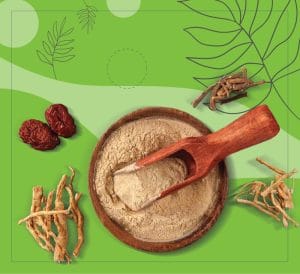This article has been reviewed by experts

सर्वे भवन्तु सुखिनः सर्वे सन्तु निरामयाः ।सर्वे भद्राणि पश्यन्तु मा कश्चिद्दुःखभाग्भवेत् ॥
“Sarve Bhavantu Sukhinah Sarve Santu Niramayah Sarve Bhadrani Pashyantu Ma Kashchid Duhkha Bhag Bhavet”
“All Should be Happy be Healthy And See Good, May no One Have Sorrow in their Heart”
Obesity (having high-fat content in your body) increases your risk of several debilitating diseases including diabetes, heart disease, and some cancers. The degree of obesity is determined by the levels of triglycerides. These fatty lipids circulating in your blood are important to supply your body with energy. But, having too many triglycerides in your blood can increase your risk of diseases. Therefore, reducing their levels should be your ultimate goal, which can be achieved naturally! [1]
How to reduce triglycerides naturally? Well, read on to know the effective methods and remedies.
15 Effective Ways to Lower Your Triglyceride Levels Naturally

- Eat less to lose weight
Eating more than required can build up extra calories in your body which can automatically enhance your triglyceride levels. Thus ensure you eat less to cut back at least 500 to 1,000 calories per day, depending on how many calories you are consuming. A 5 to 10% drop in your body weight is sufficient to lower the triglyceride levels.
- Limit your sugar intake
Sugar in the form of sweets, and juices can add up to the calories in your diet that can shoot up your calorie levels. These calories can convert into triglycerides increasing their levels in blood. The American Heart Association recommends that women should not consume more than six teaspoons, and men not more than 9 teaspoons of sugar per day.
- Consume more fiber
While you cut back on sugar, ensure to add the right and healthy carbs in the form of high-fiber complexes. These include whole grains, fruits, vegetables, beans, and legumes. Fiber prevents the absorption of extra fat and sugar in the small intestines and can easily fill you up. Thus you are less likely to snack or overeat mindlessly which may add more calories than needed [2].
- Cut back on the carbs
Extra carbs in your blood are converted into triglycerides much like added sugar. Thus following a low-carb diet can be beneficial and directly linked to reducing your blood triglycerides. Limit foods excess in starch like corn, potato, rice, and pasta.
- Sweat it out daily
Having a sedentary lifestyle can lead to a backlash since it can build up more calories. Exercising regularly can help you burn out the excess fat in your body, thereby lowering the triglyceride levels. Exercises like jogging, walking, cycling, and swimming are great ways to sweat it out. However, you may also consider high-intensity workouts after consulting your doctor [3].
- Opt for healthy fats
Monounsaturated and polyunsaturated fats are considered to be excellent replacements for unsaturated fats that can increase your triglyceride levels. Make sure you consume healthy fats like:
- Monounsaturated fats: Olive oil, nuts, and avocados
- Polyunsaturated fats: Canola oil, walnuts, flaxseeds, sunflower seeds, and soybeans.
- Enrich your plates with fatty fish
Ensure to eat fatty fish like tuna, salmon, sardines, herring, and mackerel at least twice weekly. These are rich sources of omega-3 fatty acids that are proven to lower your triglyceride levels in blood [4]
- Follow a specific and regular meal pattern
Insulin resistance is another factor that can cause high blood triglycerides. Fortunately, setting a regular eating pattern can prevent insulin resistance and high triglycerides. Ensure to incorporate six small meals per day to lower your triglyceride levels.
- Limit alcohol intake
Alcohol is high in sugar and calories. These are converted and stored as triglycerides. Limit your alcohol intake to not more than two drinks per day for women, and three for men[5]
- Pep up your soy intake
Soy foods are rich in isoflavone (plant compounds) that have a positive effect on cholesterol and triglycerides. Soy protein can be found in foods like tofu, soybeans, and soy milk.
- Snack on healthy nuts
Regular nut intake can significantly lower your triglycerides. Snack on healthy nuts like walnuts and almonds.y nuts since they are rich in fiber, omega-3 fatty acids, and unsaturated fats, all of which work together to lower blood triglycerides. Healthy nuts include almonds, pecans, walnuts, cashews, and pistachios. However, remember that nuts are high in calories, thus consuming them in moderate amounts is crucial [6].
- Consider managing the underlying cause
High triglycerides in blood are caused by numerous reasons, thus to control the levels it is essential to treat the underlying cause. This will automatically stabilize the levels. Consult a doctor for a thorough medical checkup to detect conditions like uncontrolled diabetes, or thyroid issues and treat them accordingly.
- Keep a check on your prescription medications
Certain drugs can potentially increase the triglyceride levels posing a risk for several health conditions. If your levels shoot up while taking such drugs as oral estrogen, corticosteroids, and antihypertensive drugs, consult your doctor to figure out an alternative medicine.
- Instill healthy lifestyle habits
Smoking can significantly increase your triglyceride levels, and tobacco use can also negatively affect your heart health due to the narrowing of the arteries. Thus it is essential to quit smoking to improve your overall health and well-being [7]
- Try natural supplements through Ayurveda
According to Ayurveda, natural elements have proven to be useful in lowering triglyceride levels. These include:
- Hridyas: Arjuna, Ashwagandha, Shankhpushpi
- Prabhakar Vati: Mixture of Arjun’s bark, Shilajit, Abhrak Bhasma, and Tugakshiri
- Triphala powder
- Arjunarishta
- Divya Hridyamrit Vati: Mixture of Arjuna, Punarnava, Praval, Jahar Mohra Bhasma [8]
Bottom Line
Diet and healthy lifestyle factors have a major influence on your blood triglycerides. By adopting the above-discussed methods and remedies you can deal with high triglycerides naturally. These factors have the added benefit of enhancing your overall health, and physical well-being.
FAQs
What are triglycerides?
Triglycerides are fats from the foods you eat. The extra calories obtained are converted into triglycerides and stored in the fat cells (adipocytes) to be used for energy later.
What are the causes of high triglycerides?
High triglycerides (hypertriglyceridemia) can be caused due to several reasons such as excessive alcohol consumption, uncontrolled diabetes, liver disease, kidney disease, certain medications like diuretics, excess smoking, and thyroid disease.
What are the complications of hypertriglyceridemia?
Triglycerides are alike cholesterol in your body which when increased beyond a certain limit can be debilitating increasing your risk of heart and vascular diseases
Disclaimer: This article is written from a health and lifestyle perspective. It is for general information and not meant to substitute any medical advice. Please consult your doctor for appropriate medical consultation.
References
- Clinical review of triglyceride
- Hypertriglyceridemia: Its etiology, effects, and treatment
- Aerobic exercise reduces triglycerides by targeting apolipoprotein C3 in patients with coronary heart disease
- Fish oil- How does it reduce plasma triglycerides?
- The effect of dietary interventions on hypertriglyceridemia: From public health to molecular nutrition evidence
- Optimizing non-pharmacologic management of hypertriglyceridemia
- Using high-dose omega-3 fatty acid supplements to lower triglyceride levels in 10-19-year-olds
- Safety and efficacy evaluation of Ayurvedic treatment ( Arjuna powder and Aroghyavardhini Vati) in dyslipidemia patients: A pilot prospective cohort clinical study























1 Comments